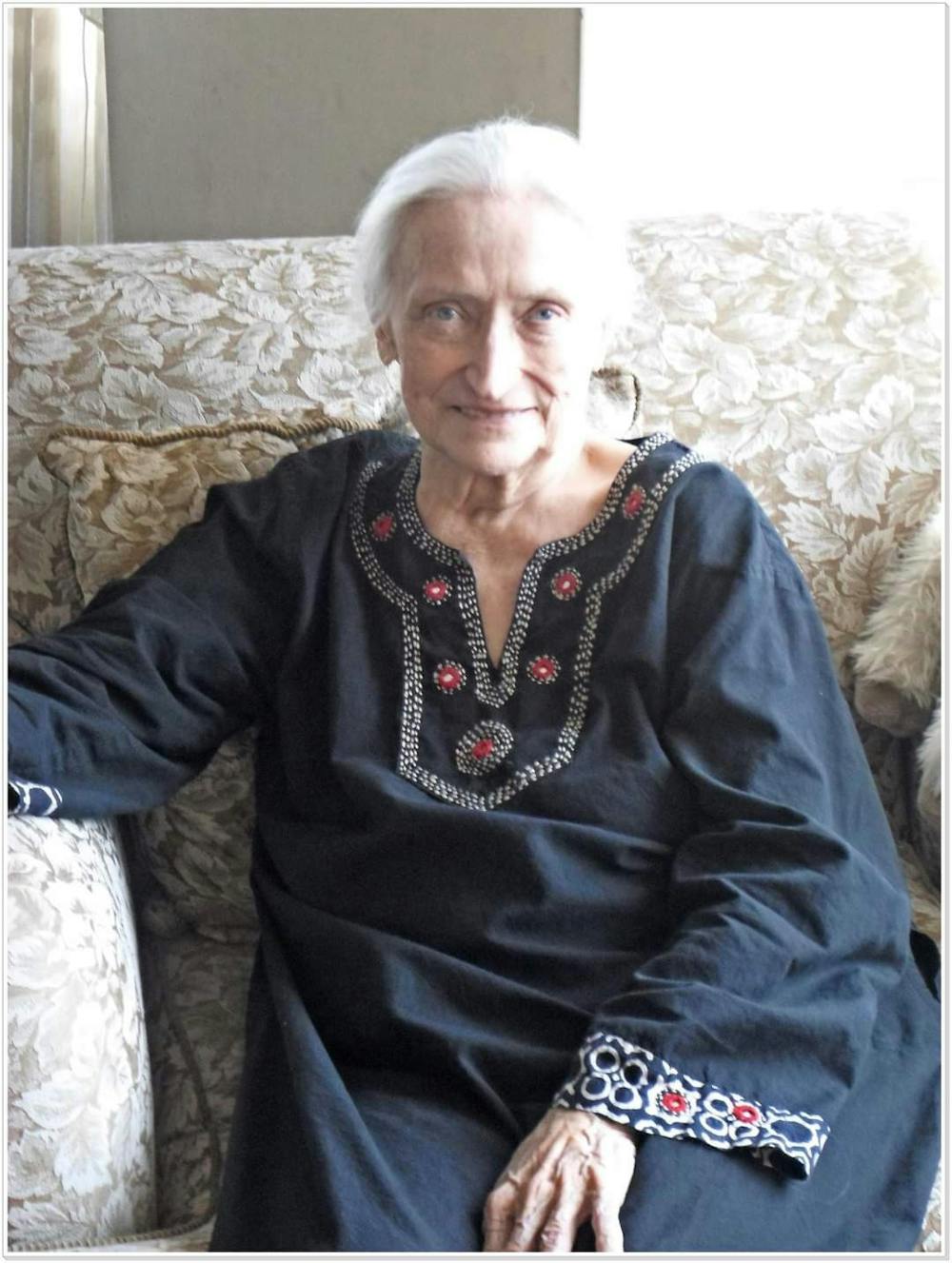Although M.J. Hardman died in her home in Gainesville, she always envisioned dying in what she considered her true home — Tupe, Peru. When the town received word that she died, the church bell rang in her honor and the entire community joined together to celebrate her life.
Hardman devoted her life to academic research, international travel and social activism in a world that questioned her abilities because she was a woman.
By the end of her career, Hardman published 24 books, 58 articles and completed 85 international lectures. She died peacefully Feb. 6 at the age of 87.
Hardman retired from UF’s linguistics department in 2010 and became a professor emeritus of linguistics, Latin American studies and anthropology, meaning she remained in an active advisory role after retirement. Her daughter, Shumaya Martha Bautista-Hardman, said Hardman dedicated her life to connecting with communities and teaching students through language.
“She really believed in humans taking care of humans,” Bautista-Hardman said. “She was a generous person. She loved strongly.”
Hardman grew up in Salt Lake City, Utah, as the maverick of her family, Bautista-Hardman said. Her family described her as different — a humanist at heart. She grew up in a Mormon family that urged her to get married and settle down. Instead, she pursued her lifelong passion for uncovering and understanding the intricacies of language.
“She actually escaped into books and escaped into libraries and escaped into academia,” Bautista-Hardman said.
Hardman graduated from the University of Utah with her master’s degree at 19 years old in 1956. She went on to earn another master’s of arts from the University of New Mexico in 1957 and her second bachelor of arts at the Universidad Nacional Mayor de San Marcos in Lima, Peru, in 1959.
Hardman was never a shrinking violet, Bautista-Hardman said. She spoke up and was fierce, especially when attending Stanford University to earn her doctorate.
“She was frequently reminded that she was wasting a perfectly good seat a man could take,” Bautista-Hardman said.
Before Hardman graduated from Stanford in 1962, there wasn’t a department for linguistic anthropology — so she started one. She was the first person to combine linguistics and anthropology under one department to earn her doctorate.
“In those days, the gender wars were major, but she developed a whole department just so that she could have her Ph.D.,” Bautista-Hardman said.
Hardman’s work resulted in the first written grammar for the Jaqaru language in Peru. For Hardman, linguistics was an art used to build international relationships.
“She found out that our language determines how we think and how we view the entire world,” Bautista-Hardman said.
Hardman met her husband, Dimas Bautista-Iturrizaga, while studying language in Tupe. He died three years ago at the age of 100. Bautista-Iturrizaga served as Hardman’s native-speaking guide during her research.
“One full moon night, when they were walking in the Andes trying to get somewhere, they fell in love,” she said.
Feb. 8 marked the couple’s 61st anniversary. They had three children: Bautista-Hardman, Arthur H. Bautista-Hardman and Elston Dimas Paqawshu Guy Bautista-Hardman, who died at the age of 4.
Hardman taught English at the Universidad de San Marcos in Lima, Peru, in 1958. She would move on to teach a variety of language-based courses and conduct research at Cornell University, University of Santa Clara, Universidad Nacional Mayor de San Andrés and Indiana University.
In 1969, she began teaching at UF to manage her own linguistics department until she retired in 2010. She continued to visit Tupe throughout her life.
“Those were her people,” Bautista-Hardman said.
Harrisse Coffee, a Gainesville resident who was friends with Hardman for 34 years, said Hardman’s knowledge of language had a deep influence on everyone she met.
“Her written work in research and traveling expanded this whole scope of linguistics for a lot of different people,” Coffee said.
Hardman taught a variety of linguistics courses to help students uncover the social connections and implications of how language is communicated, especially courses exposing the inherent sexism of human communication.
“She had a broader grasp of the world,” Coffee said. “And as a scientist, she began to see that these linguistic trends have a lot to do with how people are treated. She became an ardent feminist.”
Hardman’s work took her around the world to help her international students. Her travels included the Caribbean, Taiwan, Russia, Japan, England, Spain, Bolivia, Chile and Thailand, her daughter said.
“She was interested in all sorts of things,” Coffee said.
She was an avid science fiction reader and Star Trek fan. Hardman played piano, loved her pet parrots and was a member of the Barnacle Busters scuba diving club. Those closest to her were familiar with her passion for crocheting
Even in retirement, Hardman continued to feed her academic fervor. She took online classes that Coffee said any science-minded fanatic would take, including astronomy, physics and lobotomy.
To all the underdogs, outcasts and those who felt different, Hardman was a caretaker who loved every person she met, her daughter said. She viewed life as a beautiful wonder and maintained a childlike thrill until she died.
She wanted to make the world a better place, Bautista-Hardman said.
Contact Sophia at sbailly@alligator.org. Follow her on Twitter @sophia_bailly.
Sophia Bailly is the Fall 2024 University Editor. She interned for The Times-Picayune in Louisiana this past summer as a Capitol News Bureau reporter. When she's not reading the news, she can be found listening to podcasts, going for a run or studying Russian.






